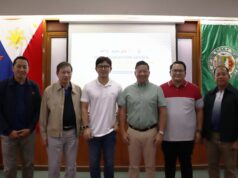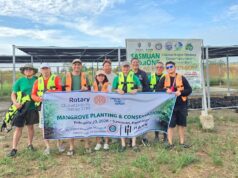ANGELES CITY- Filipino “peasants” in Rio de Janeiro?
Yes, members of Philippine peasant organizations are in the Brazilian capital, but not to sashay to the beat of carnival.
They come from the Kilusang Magbubukid ng Pilipinas (KMP) and the National Federation of Peasant Women (Amihan) and Asian Peasant Coalition (APC) who flew to Rio de Janeiro to join their counterparts from other countries under the International League of Peoples’ Struggle (ILPS) to protest the so-called Green Economy of the United Nations Conference on Sustainable Development, also known as Rio 20+, to be held in the Brazilian city.
“The chiefs, agents and apologists of the discredited world capitalist system are exploring and exploiting the United Nations Conference on Sustainable Development otherwise known as Rio+ 20 to mislead and coerce the toiling people of the world to accept their long-running program of modern-day slavery under the pretext of sustainable development, poverty eradication and promotion of food security,” said a joint statement of the KMP, Amihan and APC.
Speaking as head of the Philippine delegation, Lita Mariano of Amihan noted that “20 years ago, capitalist exploiters made the use of the same recipe courtesy of the First Rio Earth Summit in 1992.”
“The outcome was a global disaster with half of the global population now living on less than $ 2.50 a day.
Nearly 1 billion people, mostly from underdeveloped countries are traumatized by daily hunger and close to 2 billion people are terrorized by abject poverty,” she said.
Mariano said “amidst the widespread poverty, hunger and dispossession, big capitalist economies managed to amass 70 percent of the world income, and this wealth is sealed in the hands of 20 wealthiest people, majority of them are headquartered in the protected borders of the United States, the European Union and other nations comprising the imperialist bloc.”
“The global reality depicts that the bottom 20 percent of the global population share only 1 percent of the global income, a lucid testimony to the widening gap between rich and poor countries under the current modern-day slavery of global monopoly capitalism,” she added.
Mariano noted that the Green Economy agenda in Rio+20 “will continue to and further intensify the policies of liberalization, privatization, deregulation and denationalization of underdeveloped economies.”
“It will usher an unprecedented era of global landgrabbing, food crisis, massive joblessness, environmental catastrophe and worldwide dispossession,” she added.
She also warned that “Green Economy will further push wages of working people to rock bottom levels and more drastic cuts on social services, while providing super tax holidays, juicy contracts, corporate subsidies and grand bailouts to corporations.”
For his part, Pambansang Alyansa ng Lakas ng Mamamalakaya ng Pilipinas (Pamalakaya) national chairperson Fernando Hicap said “the Green Economy deserves global rejection of the toiling people.”
He warned of a “syndicate headed by the United States and the European Union which will exploit the green economy catchphrase to convince underdeveloped economies to open their water resources including oceans and lakes, municipal waters and offshore waters to transnational investments for privatization, free entry of investments and denationalization.”
According to Hicap, the mad rush for Green Economy prompted Pres. Aquino to offer two of the major fishing areas—the 90,000 hectare freshwater Laguna Lake and Manila Bay- to Green Economy investors.
“Under the Green Economy inspired Public-Private Partnership (PPP), the Aquino government offered to financial investors 54 big ticket projects in Laguna Lake that would initially cost local taxpayers some P 400-billion,” the Pamalakaya leader said.
He said the Laguna Lake Master Plan, a “Green Economy” development program hopes to transform the lake fishing environment into a major industrial and commercial hub for foreign and local investments.
Hicap said that in Manila Bay, the government has embarked on a national reclamation plan consisting of 38 land reclamation projects and will eat up 26,234 hectares of foreshore areas and coastal lands under the concept of Green Economy.
“The bankruptcy and sinister agenda of Green Economy is further exposed by the widespread offshore mining activities in the Philippines.
The Aquino administration has put in the bidding table over 10-million hectares of ocean waters in Visayas Sea, Palawan Sea, Sulu Sea and other areas in the disputed South China for oil and gas exploration,” Hicap also said.




